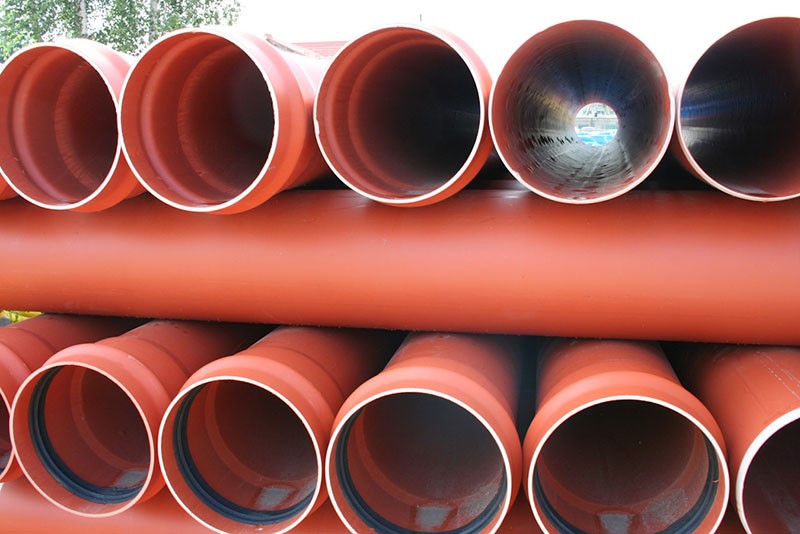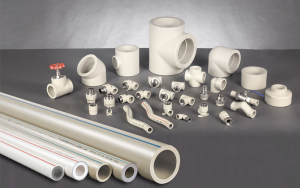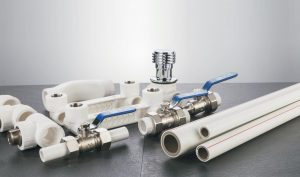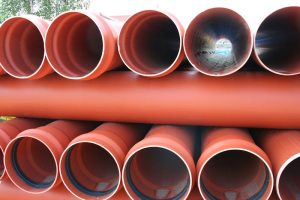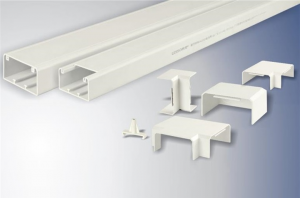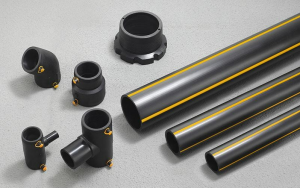Table of Contents
The sewer line materials you select for your residential plumbing upgrade, home improvement project, or piping repairs should be of the highest caliber your budget can accommodate. Broken water pipes are bad enough. Broken pipes that involve sewage, wastewater, and drainage are much worse.
At LESSO, our high-performance line of exceptional pipes and fittings offers long-lasting protection from leaks, cracks, ruptures, and other distressing and expensive calamities.
When installed properly, LESSO pipes and pipe fittings are virtually indestructible. Besides far exceeding the required plumbing specifications, all LESSO products undergo rigorous testing to ensure exceptional performance over time.
Types of Pipes and Fittings: PVC vs. ABS vs. PEX
Before you invest in a new piping installation for your residential plumbing system, learn about the different types of pipes and fittings available. Find out which pipes are most suitable for the work you want done and how the different pipes compare to each other.
Some pipes direct wastewater and sewage out. Other pipes bring clean water in. Different pipes are made of different materials. The materials used affect the price of the piping and its durability, weight, flow rate, and service life.
Given the right conditions, PVC pipes can last for more than 70 years. ABS and PEX pipes can last for 40-50 years or more. Here are the three most often-used pipes commonly employed in plumbing applications:
- Polyvinyl Chloride (PVC)
- Acrylonitrile Butadiene Styrene (ABS)
- Cross-Linked Polyethylene (PEX)
Why Are PVC Pipes the Best Choice for Residential Piping Projects?
Polyvinyl Chloride (PVC) pipes are familiar to most people. The white plastic pipes are readily available in numerous sizes and are highly versatile. They are the third-most produced synthetic polymer of plastic and are used in numerous plumbing applications:
- Indoor plumbing installations and repairs
- Electric cable insulation
- Drains, wastewater, and sewage
- Vent piping
PVC pipes are considered the best for waste drainage, vent piping, and sewer system drainage. Here’s why:
- Flexible pipes with a low weight-to-strength ratio
- Versatile application capability
- Lightweight and easy to install
- Chemical and heat-resistant
- Most affordable option
- Less costly than copper piping when converted to a per-foot system
- Exceptional strength and durability.
Although PVC piping is a top performer, it does have limitations. Impact resistance is reduced, and PVC pipes can get brittle in cold climates.
ABS vs PVC: Chemical Composition and Safety
The most important difference between ABS pipes vs. PVC pipes vs. PEX pipes involves safety. ABS pipes contain bisphenol A (BPA). This compound is used in some plastics and resins because it produces stronger pipes.
There is disagreement as to whether health risks are associated with BPA. Nevertheless, it’s considered safe by the FDA in certain amounts.
ABS piping is best used for underground installations, high performance in extreme cold and locations where there is little exposure to direct sunlight. PVC, on the other hand, is ideal for indoor plumbing because it’s not noisy.
Installation Differences: ABS vs. PVC vs. PEX
Pricing is about the same for PVC and ABS pipes. Both types resist chemical and water degradation. PVC pipes are more flexible. ABS, because it’s made of stronger materials, is better able to resist high impact and shocks.
ABS pipes are typically black. PVC pipes are customarily white. A PVC piping installation is a two-step process. The pipe connections must first be primed before joining them together with cement. ABS pipes are made with a special cement.
PEX piping is somewhat bendable, so it doesn’t need many connections. It costs more than ABS and PVC, but if you have soft water and want pipes that will go the distance, the slightly higher price may be worthwhile.
ABS Pipe vs PVC: Longevity and Durability
PVC pipes can last for 70 years or more. ABS and PEX piping can last for about 50 years. However, PVC pipes require copper fittings, otherwise, they may crack or weaken.
PEX pipes are more elastic and bendable than PVC and ABS. They resist rust and corrosion, and they require little maintenance. PEX pipes are unlikely to need replacement down the road.
The greater degree of malleability in PEX pipes comes in handy if adjustments are needed during the installation process. PEX piping resists freezing, and that minimizes the potential for cracked pipes, frozen pipes, and burst pipes.
PEX vs. ABS vs. PVC Drain Pipes: Maintenance
Compared to ABS and PEX pipes, PVC is the most widely used and the most cost-effective option for sewage line installation and repair. PVC has become the preferred option for many homeowners and contractors alike.
An important difference is whether you’re replacing random, worn-out sections of pipe or upgrading your entire plumbing system.
Choosing the right material for pipe repair and replacement depends on the specific requirements of the system in question. Considering factors such as temperature, pressure, and water volume will help ensure the longevity and efficiency of the plumbing system while minimizing the risk of leaks or failures.
Don’t neglect pipe maintenance. Your plumbing system brings fresh water from the main city water line into your home. It then transports wastewater and sewage back to the city sewage system. If anything goes wrong with either of those systems, you could have a sizeable mess on your hands.
PVC is arguably the most sustainable option for sewer line repair and replacement. it’s not suitable for hot water piping, drinking water lines, or large volumes of water. Those tasks are best served by CPVC piping specifically designed to withstand high pressure and high temperatures.
Summary
If you’re considering an upgrade in your sewage, drainage, wastewater, or vent piping systems, plastic PVC or CPVC pipes are by far the most practical, economical, efficient, reliable, and sustainable piping material available. PVC pipes also provide excellent insulation for electrical cables.
At LESSO, we create high-performance plumbing solutions and piping systems that are affordable and cutting-edge. Your home is where your heart is. Our products are designed to keep your blood flowing.
FAQs about PVC Pipe
PVC pipes have a good tolerance for temperature variations, but they can become brittle in extremely cold conditions or soften in high heat. It’s essential to consider the climate of the installation area and choose the appropriate type of PVC pipe accordingly.
Standard PVC pipes are not recommended for hot water supply as they can soften at high temperatures. However, CPVC (Chlorinated Polyvinyl Chloride) pipes are designed to handle hot water and are a suitable alternative.
PVC pipes have good chemical resistance to many acids, alkalis, and salts. However, they are not suitable for use with some organic solvents and oils. Always consult the manufacturer’s guidelines for chemical compatibility.
Recommend Reading
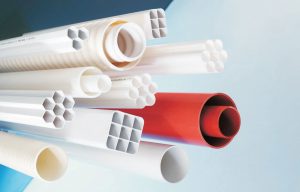

What’s the Difference Between PVC Pipe and PVC Conduit
Table of Contents PVC or Polyvinyl Chloride pipes use vinyl and plastic materials. We use these pipes in plumbing systems. If you do not want
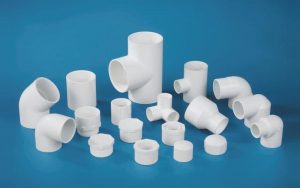

What are the Different Types of PVC Fittings?
Table of Contents Pipe fittings connect the pipes together and allow you to customize your plumbing to suit your needs. There are lots of different


